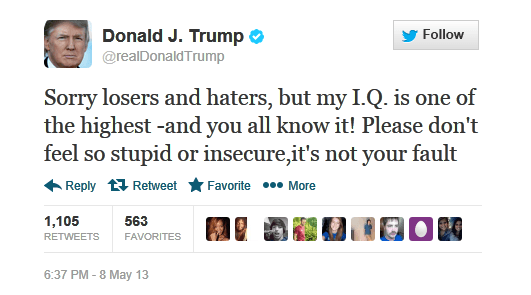Testimonies that Speak the Cold, Harsh Truth
- Vincent Rotondo

- Apr 7, 2020
- 4 min read
Updated: Apr 11, 2020
As a male who recently turned eighteen years old, I could not be any more excited to commence my journey as an informed voter. I have heard from my parents and educators that voting comes with much responsibility since one’s vote can have an impact on who leads this nation - I took their notions to heart and have always made a conscientious effort to fulfill my duties as a good voter. From early on, I would commit myself to reading about politics and policies; however, I believe that my status of being a teenager in the age of technological innovation (2000s) is what has contributed most to the messages I retain in order to influence my voting patterns.
Ever since my parents allowed me to access the social platform, Twitter, I began to socialize with some candidates more so than others - Twitter is what enabled me to come to the awareness that I am a Democrat, since I resonate with the ideas expressed by members of the Democratic Party. Stephan Heblich, who is a professor at the University of Bristol, notes that “the introduction of interactive social media and “user-defined” content has affected voting behavior, but there is a downside: voters can now be personally identified and strategically influenced by targeted information,” which does make sense to me; however, I also read a lot of books about the two major political parties and do not solely rely on what I read in the media because I understand how misleading media messages can be (Heblich 2016, 1). Although I did not vote in the monumental Presidential Election of 2016, I knew that I would have never voted for President Trump because his tweets managed to irk me even from when I was a sophomore in high school. However, those who do favor Trump like him because of how authentic he is in his tweets that almost always contain spelling errors - I concede that I appreciate a politician who produces their own material; however, Trump loses me on the actual content he creates.
* Search engines are a viable and powerful sources at obtaining media messages. All I did was search Trump's Twitter and this is the first message I encounter from him...
Likewise, I never contemplated the thought of being prohibited to vote until I began my Comparative Case Study - I grew up with the mindset that turning eighteen years old was my ticket to being able to vote. I realize now that I have taken my ability to vote for granted, and I credit that realization to Jane Dailey’s book, The Age of Jim Crow. Though Dailey was born in 1944, she compiled archives of victims during the age of Jim Crow to inform people of the present day like you and I about the harsh reality of racism that African Americans were subjected to by the Ku Klux Klan. She also incorporates the testimonies of former KKK members in her book to enable readers to come to an awareness of just how sick and twisted they were in hopes of achieving their main purpose - lynching African Americans to death. Focusing on the messages African Americans received in regards to voting during the 1890s; however, the testimony of Dick Wilson is said to have contributed to the “depression of African American turnout from the violence Wilson endured from his neighbors,” (Dailey 2008, 24). Wilson was an average African American male who proudly voted Republican, was paid a visit by the KKK and his story went public in African American newspapers. They told him to “stretch out; we want to make a Democrat out of you tonight. Well, they commenced whipping me; I commenced begging them so powerfully to stop, but they didn’t,” and a phrase as short as this was still enough to instill fear among most African Americans in the 1890s (Dailey 2008, 27). Although Wilson survived the beatings he endured, the sole reason why he was even attacked in the first place is because he voted in a manner that does not reflect the will of the KKK.
During the 1890s, members of the KKK were known for voting Democratic and would threaten anyone who had dissenting political opinions. African Americans would identify politically as Republican because Democrats were fueled by a desire to slow down the advancement of African Americans. (*Think about it; many Democrats were former slave-owners*) With respect to my voting literacy, I grew up with an understanding that our vote represents our voice since we make the decision as to who we vote for. It genuinely bothers me to come to an understanding that an eighteen year old African American male in the 1890s had to vote against a candidate that they may have wanted to win simply to protect themselves from being ‘paid a visit’ by the KKK. Meanwhile, I am over here complaining about annoying tweets by politicians that I view on my social media account - this is because I have the freedom to choose who and why I vote for someone. I have since realized from performing this Case-Study that there once was a time in our nation’s history where my freedom to choose who and why I vote for someone failed to exist for African American males my age.
* Photographed below are teenage African American boys in the 1890s - they truly are brave and strong souls. Despite having received negative messages toward voting, they managed to keep their heads held high in the pursuit for a better tomorrow.











Comments